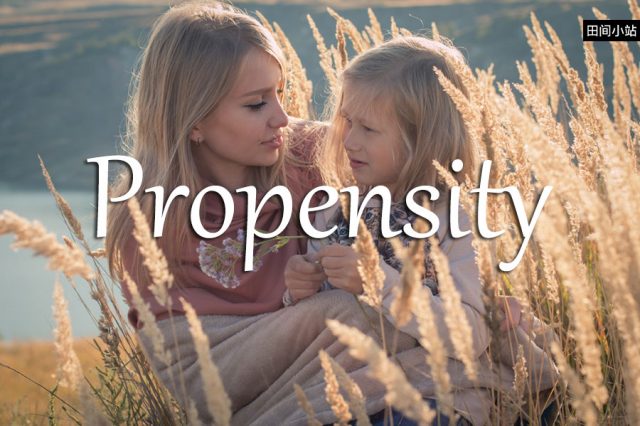
TOEFL SAT GMAT GRE
外刊例句
- A widespread propensity to hoard money posed a problem for Say’s vision.
人们普遍喜欢囤积货币,这对萨伊的观点构成了挑战。
——《经济学人》 - He had all the classic symptoms: procrastination, forgetfulness, a propensity to lose things and, of course, the inability to pay attention consistently.
他表现出所有的典型症状:拖延、健忘、习惯性地丢三落四,当然还有不能持续保持注意力的问题。
——《纽约时报》
基本释义
[noun] an inclination or natural tendency to behave in a particular way
[名词] 以特定方式行事的倾向或自然趋势
深入解读
Propensity 一词是过时形容词 propense (偏向或倾向于……的)的名词形式,源自拉丁语 propendere (倾斜、下垂),现在主要表示性格、行为方面的“倾向、习性”,比如受自然欲望驱使而来的习性:
- 孩子们淘气的习性
the mischievous propensities of children
但一般更多的是用来表示某种不良的“倾向、嗜好、癖好”,强调源于某种天生的或固有的无法控制的渴望,比如:
- 她从她父亲那里继承了话多的毛病。
She's inherited from her father a propensity to talk too much. - 她不曾料到他有暴力倾向。
She hasn't reckoned on his propensity for violence.
名人用例
Woman has, in general, much stronger propensity than man to the discharge of parental duties.
一般说来妇女较之男人更倾注于尽到父母的责任。
出自英国诗人威廉·考珀 (William Cowper,亦译威廉·柯珀或威廉·古柏,1731年11月26日-1800年4月25日)。威廉·考珀是他那个时代最受欢迎的诗人之一,通过描绘日常生活和英国乡村场景,改变了18世纪自然诗的方向。
同近义词
- tendency: an inclination toward a particular characteristic or type of behavior
- inclination: a person's natural tendency or urge to act or feel in a particular way; a disposition or propensity
- predisposition: a liability or tendency to suffer from a particular condition, hold a particular attitude, or act in a particular way
